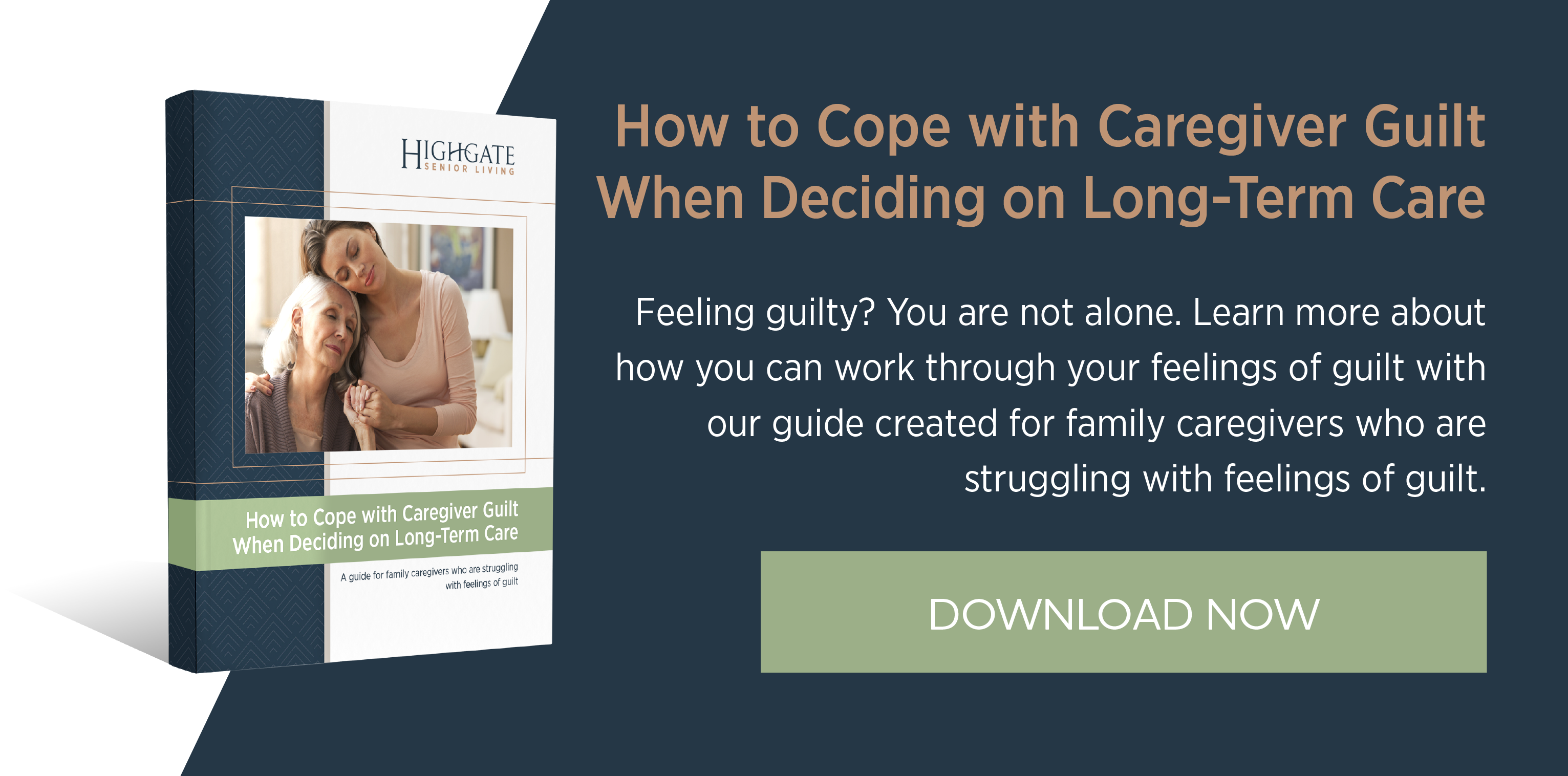
A common question older adults ask is, “Why would I move out of my house?” They equate living in their home with freedom, independence, and happiness because that is how they have always felt about it. Their question assumes that staying in one’s home will always convey those virtues.
However, when caring for them at home becomes dangerous or nearly impossible, it is absolutely necessary to move them to a place where they can get the care they need. Even if this is the best decision for their health and for yours, the guilt and sadness can still be overwhelming.
Detach with Love
If you are struggling with a decision to place your loved one in an assisted living community:
- Realize that you cannot fix your loved one’s illness or illnesses. They would continue to suffer from them whether you were the sole caregiver or there is outside help.
- Understand that sometimes professional care is necessary for the safety or comfort of your loved one and/or for you to have some life apart from caregiving.
- Take time to grieve your loss. Being the primary caregiver for a vulnerable person is a huge responsibility. You need to make decisions about things that often seem to have no right or wrong answers. Yet you have to decide — and then detach a little. What more can you do?
Fortunately, research shows that moving into an assisted living community comes with quality-of-life advantages that, often, living at home cannot match. They also offer health benefits that could prolong health.
Stop Feeling Guilty
Here is a look at three common reasons family caregivers feel guilty about moving their parents to assisted living and why you can stop feeling guilty about them.
1. Think you have failed in your duty to care for them? You have not failed.
Whether you promised Mom you would always take care of her or your dad asked you to never abandon him, sometimes moving someone to assisted living means that you are taking care of them by getting them the level of care they need.
Moving to assisted living does not mean your loved one is abandoned, either. You can still spend as much time with them as you can, talk frequently with the care partners and team members, and manage their overall care. You are taking good care of your aging loved one, and you certainly have not abandoned them.
2. Think you are not a good caregiver? You are a great caregiver.
How often do you compare yourself to others or beat yourself up for things that are out of your control? Just because your friend takes care of her mom at home does not mean you should be able to, too.
Everyone’s situation is different. Your loved one may have more serious health conditions or need a much higher level of care than is possible for you to provide. If your health is suffering or if someone could get injured, it is time to make a change.
Moving your loved one to assisted living protects both of your health and safety and allows them to get the care they need. Besides, if you do not protect your own health, you surely will not be able to keep caring for them.
3. Think your parents will be miserable? They will not be.
Putting anyone into a new environment can be an uncomfortable and even distressing experience. Suddenly, you are asking your parents to form new acquaintances, trust new professional care partners, navigate new schedules, and acclimate to new environments.
However, these are exactly the benefits of assisted living. In assisted living, residents can easily socialize with peers, not only in common areas but also through planned, structured activities like field trips, dancing, and cultural events.
Residents can enjoy a fine-dining experience every day of the week. Laundry and housekeeping services are typically provided, which means your parent will have more time to take part in a wide variety of activities that are generally offered on-site or on excursions or day trips off-site.
By helping your loved one plan ahead for long-term care, you can avoid the stress and regret of hasty decisions and put him or her in a well-chosen senior living arrangement. Not only will you still be part of the care team, but you will also get to be their son or daughter or husband or wife again. You will still be your loved one’s advocate, just not their full-time caregiver.
For now, you will give much of your attention and your life to help them. Just do not give it all. Accept and respect reality. A commitment also to some life of your own will make you a more refreshed caregiver and protect against caregiver burnout. That is a winning situation for both sides.
For more information, download How to Cope with Caregiver Guilt when Deciding on Long-Term Care, a guide for family caregivers who are struggling with feelings of guilt.






